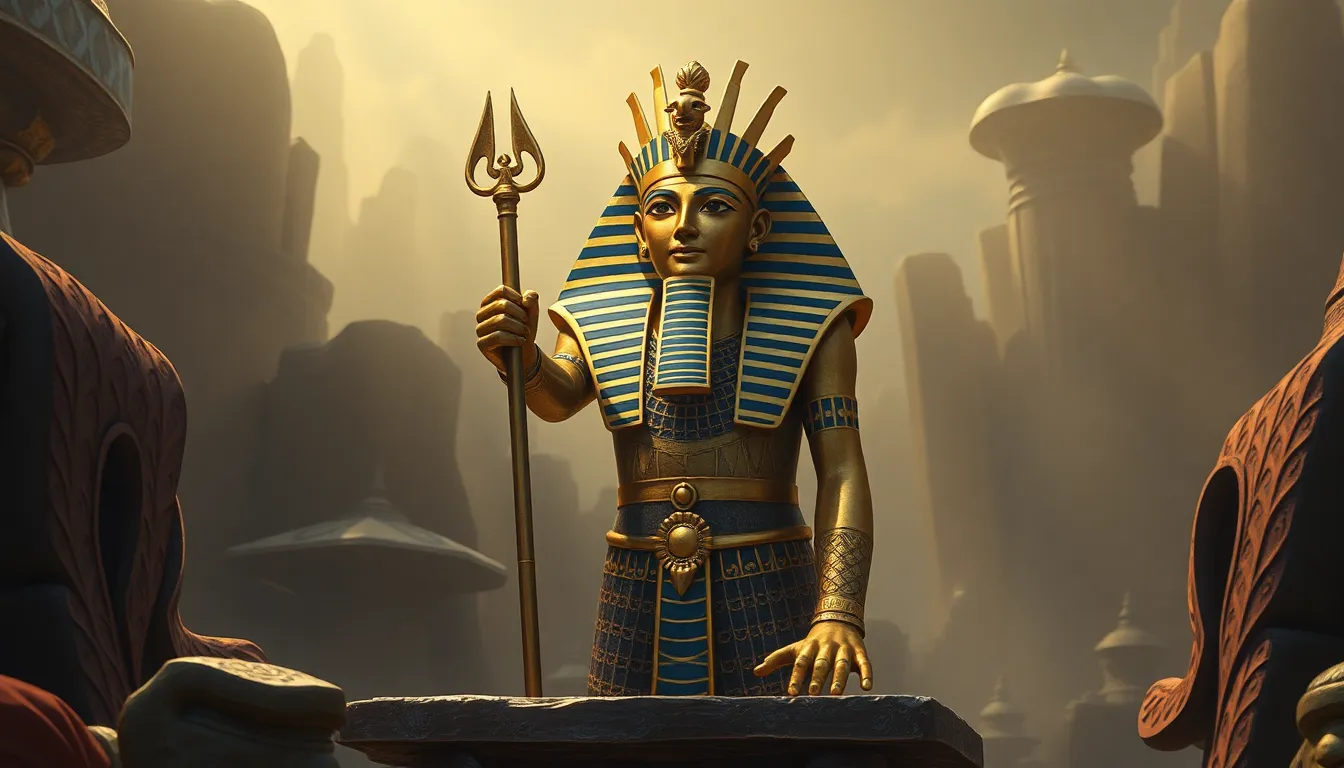The Myths of Thoth: The God of Knowledge and Wisdom
I. Introduction to Thoth
Thoth, one of the most revered deities in Ancient Egyptian mythology, embodies the principles of wisdom, knowledge, and writing. As a god, he played a crucial role in the lives of the ancient Egyptians, being seen as the source of all knowledge and the patron of intellectual pursuits. His significance extended beyond mere wisdom, as he was also associated with the moon, magic, and the arts, showcasing a duality that made him a versatile figure in the pantheon of Egyptian gods.
II. The Origins of Thoth
Thoth’s origins are steeped in the rich tapestry of Egyptian creation myths. He is often described as the son of Ra, the sun god, and in some accounts, he is said to have been born from the mind of the creator god, Atum.
A. Genealogy and creation myths
Thoth’s genealogy varies across different texts; however, he is consistently portrayed as a primordial deity. In some creation myths, he is credited with the act of creation itself, contributing to the formation of the world through his wisdom.
B. Thoth’s role in the creation of the universe
In the Heliopolitan creation myth, Thoth is instrumental in creating the world from chaos. He is often depicted as the one who brings order, establishing the laws of the universe and ensuring that balance is maintained among the gods and the cosmos.
III. Thoth’s Attributes and Symbols
Thoth is commonly represented in Egyptian art with specific attributes and symbols that underscore his divine nature.
A. Iconography: The ibis and the baboon
His primary animal symbols are the ibis and the baboon. The ibis, with its long beak, is associated with wisdom and is often seen in depictions of Thoth holding a writing palette. The baboon, known for its intelligence and vocalizations, represents his connection to the moon and the arts.
B. The significance of the writing implement and the moon in his depictions
Thoth is frequently depicted holding a writing implement, symbolizing his role as the god of writing and knowledge. Additionally, the crescent moon is often associated with him, representing the passage of time and the cycles of life.
IV. Thoth as the God of Writing and Knowledge
Thoth’s contributions to writing and knowledge were monumental in shaping Egyptian culture.
A. Invention of hieroglyphics and its impact on Egyptian culture
Thoth is credited with the invention of hieroglyphics, the sacred script of ancient Egypt. This invention allowed for the recording of history, religion, and culture, ensuring that knowledge could be passed down through generations.
B. Thoth’s association with scribes and intellectual pursuits
As the patron of scribes, Thoth was revered by those who engaged in writing, mathematics, and other intellectual pursuits. Scribes often invoked Thoth in their work, seeking his blessing for accuracy and wisdom.
V. Thoth’s Role in Egyptian Mythology
Thoth’s role in Egyptian mythology is expansive, particularly in key myths that define the relationships among the gods.
A. The god’s involvement in the myth of Osiris
In the famous myth of Osiris, Thoth plays a crucial role as a counselor and mediator. He assists Isis in her quest to revive Osiris after his murder by Set, demonstrating his wisdom and problem-solving capabilities.
B. Thoth as a mediator and counselor among the gods
Thoth’s wisdom made him the go-to deity for resolving disputes among the gods. He often acted as a mediator, using his knowledge to restore harmony and balance within the divine realm.
VI. Myths and Legends Surrounding Thoth
Numerous myths highlight Thoth’s wisdom and his interventions in both divine and human affairs.
A. Tales of Thoth’s wisdom and intervention in human affairs
One popular tale recounts how Thoth intervened to save humanity from the wrath of Ra, who was angered by the disobedience of humans. Thoth devised a plan to create a new system of governance, illustrating his role as a protector of humanity.
B. Myths highlighting Thoth’s role in maintaining cosmic order
Thoth is also credited with maintaining the cosmic order known as Ma’at. Through his wisdom, he ensured that the natural laws of the universe were upheld, preventing chaos from overtaking the world.
VII. The Legacy of Thoth in Modern Culture
The legacy of Thoth extends far beyond ancient Egypt, influencing various aspects of contemporary culture.
A. Thoth’s influence on contemporary spirituality and occult practices
Thoth has become a symbol of knowledge and wisdom in modern spiritual practices. Many occult traditions reference Thoth as a figure of enlightenment, associated with the pursuit of higher knowledge and understanding.
B. Representation of Thoth in literature, art, and popular media
Thoth’s image and mythology continue to appear in literature, art, and popular media. From fantasy novels to movies, Thoth is often depicted as a wise sage, guiding characters on their quests for knowledge and truth.
VIII. Conclusion
In summary, Thoth stands as a multifaceted deity in Egyptian mythology, representing the principles of knowledge, wisdom, and cosmic order. His influence on writing and intellectual pursuits has left an indelible mark on human history, while his legacy continues to inspire spiritual seekers and creatives in modern culture. Thoth remains a timeless symbol of the quest for knowledge and the importance of wisdom in navigating the complexities of life.




